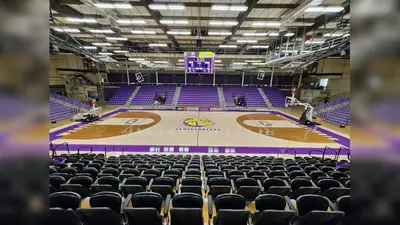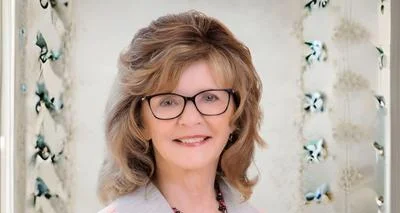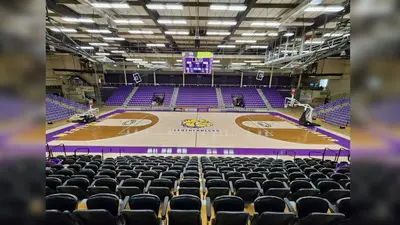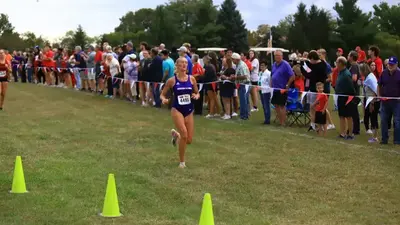City of Macomb Committee of the Whole met Aug. 13.
Here is the minutes provided by the Committee:
The Committee of the Whole of the Macomb City Council met on Monday, August 13, 2018 at 5:15 p.m. in the City Council Chambers of City Hall at 232 East Jackson Street, Macomb, IL.
Mayor Inman called the meeting to order.
Roll call was taken and the following were present: Mike Wayland, John Vigezzi, Mellie Gilbert, Tom Koch, Gayle Carper, Don Wynn and Dennis Moon. Others present: Deputy Clerk Renee Lotz, City Administrator Dean Torreson and City Attorney Kristen Petrie. Also in attendance were Public Works Director Scott Coker, CDC Ray Heitner and Intern John Bannon.
Public comment. None.
The first item on the agenda for discussion was on an ordinance to create a Class P liquor license for Niemann Foods Inc. d/b/a Haymaker #767. This ordinance had first reading last Monday night. There was no further discussion on the matter and Mayor Inman stated it would be placed on the agenda for second reading and final action at next Monday night meeting.
The second item on the agenda for discussion was on an ordinance to amend Sections 4-3, 4-71, 4-72.1 and 4-72.2 of Chapter 4 of the Municipal Code of Macomb, Illinois pertaining to the creation of a Class M Micro/Craft Brewery License, a Class MB Micro/Craft Brewery Foodservice Liquor License and a Supplemental Class OW Onsite Wine Consumption License. A revised copy was handed out prior to the meeting by Counsel.
City Attorney Kristen Petrie explained the following small changes; she was given an update from the Governor’s Office that the particular house bill has been signed and was now enacted. Addressing concerns having our Class “M” & “MB” allowing the sales of other brewed beers. We have incorporated State Licensing in our amendments which allows on site sales of other off-site brewed beer.
She stated the remainder of the contents remain with exceptions; hours of operation were modified to bring clarity, New Year’s Day was omitted, “New Year’s Eve” day will carry through to 1 A.M. The annual licensing fee will be $1850 which mirrors the lower “Boutique” license.
The “OW” on-site supplement was reduced to $250.00. This subclass is allowed pursuant to the way our “set up establishment” definition is written. This is a better way to maintain this component, listed specifically because it’s not found “exactly” in the State Licensing, targeting a special group and allowing a “corking fee” by the licensee so that patrons can bring their own bottle (wine) and be served. The State Licensing under Class 1 & 2 doesn’t allow craft brewery to distribute wine. This would allow that.
Alderman Carper asked if the Statutory Construction of the ordinance should include “ale” when beer was mentioned.
City Attorney Petrie stated it could be stricken because beer included “ale” by the State’s definition, as to what beer was made of, and going on to include “ale”, lager, porter etc.
Alderman Carper stated after reading she noticed (her logic), the “intent” of the different “primary” licenses, there were only certain supplemental that go with each primary mentioned within the sections, talking about example Class M & MB, the only supplemental they could obtain would be the outdoor, on-site wine, extended hours, and Sunday sales.
City Attorney Petrie stated they couldn’t obtain an “EH” extended hours.
Alderman Carper stated if read in section 4-71, one could argue any of the primary holders should be able to get any or all of the supplemental licenses. As read it states; a license issued under this chapter shall be one of the primary license class specified in this article and may include any 1 or more of the applicable supplementary licenses. This would allow the Class M & MB to obtain not only the EH, SS, OL, PS and Package Sales. She didn’t think that was the intent of the liquor license scheme.
City Attorney Petrie stated her counter to that was; within the main licensing there were provisions which state; after obtaining a license, that’s where the additional sub classes were offered. Section 4-71 gives the breakdown of the acronyms and what they stand for. Then within the actual License Class it gives what’s available for each one, meaning under a Class A License, “SS” Sunday Sales does not exist, it’s not available. Not all main licensing may obtain any subclass, only that which is listed within the body of the main section of the class description. We can add some language to 4-71.
Alderman Moon asked why we’re expanding their ability to have sales on Sunday when we’ve limited it to places that only serve food, we have no package sales.
City Attorney Petrie stated the nature of activity for this class was meant to be less intense as far as alcohol consumption driven, and more of the craft or artisanal, their package only allows it to be their own crafted brew, there’s no package supplement to theirs.
Alderman Moon stated he just wanted the public to understand that they will be allowed to sell their product to carry out. He stated in the past he advocated for everyone to have that ability, however there was a lot of turn out against it. He believed this to be a crack in the door, he has no problem with it if everyone is allowed also.
He asked for clarification concerning State Statute, they will be allowed to sell another micro-brewery product.
City Attorney Petrie stated they can sell from another brewer as long as that brewer holds a Class 1 or 2 license.
There was no further discussion and Mayor Inman stated it would be placed on the agenda for first reading at next Monday night meeting.
The third item on the agenda for discussion was on the proposed revisions to the sign ordinance for the City of Macomb. CDC Ray Heitner gave an overview of the ordinance changes:
*Content Neutrality- to comply with policy set forth by the U.S. Supreme Court case of Reed vs. Town of Gilbert, AZ (2015) City Staff and Planning Commission have removed all content based descriptive language from the sign code. Signage will be regulated by size, structure, location, and quantity, but not content.
*Temporary & Permanent Signs- (Sec.17-895) a clearer distinction has been made between what is categorized as a temporary sign and what is permanent sign. We have also given uniform size (16 sq. ft.) and height (4 ft.) restriction to all Temporary signs, regardless of zoning district.
*Monument-Development Entry Sign- (Sec. 17-895) in certain zoning districts, we have expanded upon the standard monument sign definition to include monument – development entry as its own signage type. These are signs that would typically act as a marker, signifying a subdivision or office park type of complex. These signs will only be permitted by special use in residential zoning districts.
*New Definitions- (Sec.17-896) the following items have been given new definitions in section 17-891; Billboard Sign, Digital Billboard, Billboard Spacing, East Billboard Corridor, North Billboard Corridor, West Billboard Corridor, West Bypass Area Corridor, and Monument-Development Entry Sign.
*Billboard Regulations- (Sec. 17-896) to help better accommodate any future billboard signage development inquiries, we are recommending adding section 17-896 “Billboard Regulations” to the sign code. Much of the language in this section has been borrowed from peer Illinois municipal ordinances on local billboard regulation.
*Billboard Corridors- (Sec. 17-896 (c)) we are proposing the adoption of four different corridors which would permit the use of billboard signage. These corridors will begin at various points along the City’s fringe and extend outward to the terminus of the City’s 1.5 mile zoning buffer. Billboard signage, or pole signage in excess of 150 s. ft. in face size, will only be permitted in these corridors. Furthermore, bulletin-sized billboards (signs in excess of 400 sq. ft.) will only be permitted in these corridors via “special use”.
*Billboard Location Restrictions- (Sec. 17-896 (c)) in addition to requirements dictating that billboards may only be permitted within the aforementioned billboard corridors; the following location requirements are also being proposed.
1. The base of each billboard shall be at least 750 feet from the exterior wall of the nearest residence.
2. The spacing between billboards shall be at least 500 feet.
3. The top of the billboard shall not be more than 30 feet above the surface of the lot.
4. No billboard may be located any closer to the right-of-way than 20 feet.
He referred to the color map showing the (4) billboard corridor locations.
Mayor Inman stated the obvious challenges on the west side corridor at the 336 interchange and requested that there be an exception to 30’ height for billboards per “special use” when necessary to overcome the large pile of dirt. Signs need to be seen when the business cannot.
Alderman Carper asked how many temporary signs were allowed.
CDC Heitner stated 2 per parcel.
Alderman Moon asked how many political signs were allowed.
CDC Heitner stated those would most likely qualify under temporary signs, limited to a length of time, no obstruction of visibility triangles.
City Attorney Petrie stated the law currently doesn’t restrict a time limitation pertaining to political signs. She pointed out the IL State law was inconsistent with the U.S. Supreme Court decision because of the calling for neutrality of content.
Alderman Moon stressed that it’s one’s choice to be able to place as many political signs as they choose, but it was important to follow the protocol for safety purposes.
Mayor Inman stated that’s the primary reason behind permitting these; there’s no desire for revenue because there’s no fee, we want that known in the community that we’re only giving input and guidance so people don’t create traffic hazards and understand there’s no posting of signs in public right of way.
There was discussion on classification of a political sign under “temporary” where it’s stated a limited number. City Attorney Petrie reiterated that there’s been no decision or discussion at this point at the legislative level as how to apply the current Illinois law (which allows the political signage, unlimited number and time) and fit it into what the U.S. Supreme Court has handed down.
We’re going to have to manage it the best way possible to live under both different concepts of the law which are not consistent of each other.
There was much discussion over this issue.
CDC Heitner explained the ordinance revisions had passed through the planning commission.
There was no further discussion and Mayor Inman stated it would be placed on the agenda for first reading at Monday night meeting.
Upon a motion being duly made by Alderman Vigezzi and seconded by Alderman Wynn to move into executive session to consider information relative to: a.) Appointment, employment, compensation, discipline, performance or dismissal of an employee of the public body or legal counsel for the public body, pursuant to Sec. 2 (c)(1) of the Open Meetings Act., on question being put, Aldermen Wayland, Vigezzi, Gilbert, Koch, Carper, Wynn and Moon being all Aldermen voting “Aye” on roll call and no “Nay” votes, Mayor Inman declared the motion carried and they adjourned into executive session at 6:09 p.m.
Alderman Vigezzi moved, seconded by Alderman Carper to move back into open session, all Aldermen voting “Aye” by Viva Voca vote, Mayor Inman declared the motion carried and they moved back into open session at 6:32 p.m.
There being no further business to come before the Council, Alderman Vigezzi moved, seconded by Alderman Carper to adjourn the meeting, all Aldermen voting “Aye” by Viva Voca vote, Mayor Inman declared the motion carried and they adjourned the meeting at 6:32 p.m.
https://cityofmacomb.com/08-13-2018-committee-of-the-whole-minutes/





 Alerts Sign-up
Alerts Sign-up